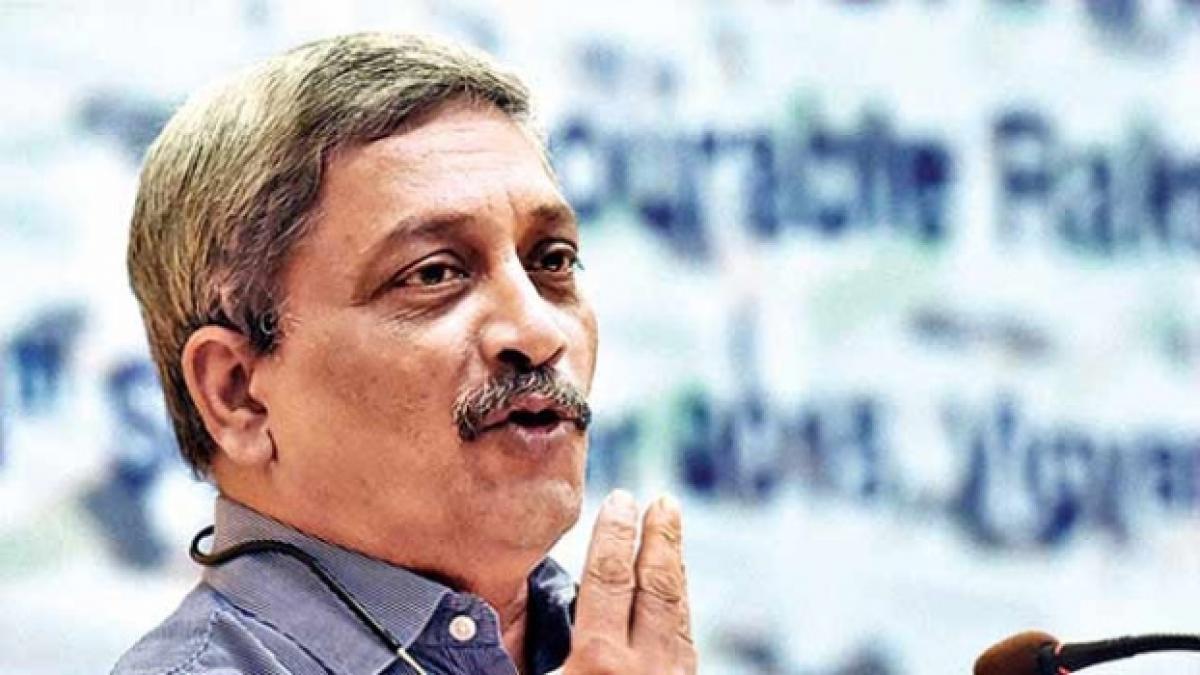Live
- Bank guarantee waiver to help telcos expand networks, upgrade tech: Industry
- Constitution Day 2024: Year-Long Celebrations Kick Off with President’s Address
- MUDA case: K'taka HC adjourns hearing of plea for CBI probe to Dec 10
- AP High Court adjourns hearing on Ram Gopal Varma's anticipatory bail petitions
- Russian Cosmonauts Respond to Unusual Odor on the ISS
- Bangladesh court rejects bail plea of Hindu priest Chinmoy Krishna Das, sends him to jail
- President Murmu Marks 75 Years of Indian Constitution with Commemorative Coin and Stamp
- Three dead in sofa manufacturing factory fire in Greater Noida
- Actor Sri Tej Accused of Cheating by Woman
- Constitution Day 2024: Celebrating India's Foundational Document
Just In

Even as rains lash Goa, the state\'s politics – already embroiled in controversies surrounding red meat – has come to resemble a piping hot bowl of beef stew, a popular comfort food for the local Catholic community in the monsoons.
Even as rains lash Goa, the state's politics – already embroiled in controversies surrounding red meat – has come to resemble a piping hot bowl of beef stew, a popular comfort food for the local Catholic community in the monsoons.
Only, the "stew" brings no comfort to the Bharatiya Janata Party (BJP)-led alliance government, which faces questions from coalition and party MLAs, the influential Goa Catholic Church, beef traders and civil society, on purported moves to usher in the beef ban by the back door.
As a result, Chief Minister Manohar Parrikar appears caught between a frozen slab of beef and a very hard place vis-a-vis distancing himself from the aggressive anti-beef posturing of the BJP's central leadership and pacifying his MLAs, seven out 12 of whom are Catholics. The minority community accounts for more than 26 per cent of Goa's 1.5 million population.
The beef controversy exploded in Goa a couple of weeks back, when a central government notification banning animal markets, led to a temporary beef shortage here. The Qureshi Meat Traders Association of Goa told IANS that cow vigilante groups stopped legal consignments of cattle meant for slaughter in Goa from neighbouring Karnataka for several days after the central environment ministry notification.
"This harassment has been temporarily resolved. We are allowed to get our cattle for slaughter for now. But once the animal markets from where we source our cattle stops, where will we buy them from? This notification is nothing but a beef ban by the back door," Anwar Bepari, a spokesperson for the association, said. The Goa Church also endorsed the concern, by backing a newly-formed civil society coalition.
"Why (has) the government failed to raise any issues or make any statement with respect to the ban on sale of cattle for slaughter, which would affect the livelihoods of thousands of people in Goa, besides impinging on the food habits of a significant number of people in Goa," Fr. Savio Martins and Abdul Matin, co-convenors of "Goa for Beef-Beef for Goa," have said.
Beef is consumed in the form of stew, curries, roasts, soups and is an essential protein, and one of the cheapest meats, in most Catholic homes in the state. Cheaper than mutton, beef is also commonly consumed in the tourism-oriented coastal belt, which is visited by more than four million tourists every year.
Official statistics suggest that the state consumes more than 40 tonnes of beef every day. Ruling political parties like Goa Forward, which had attacked the BJP over its alleged anti-minority policies only to subsequently join a BJP-led coalition, now wants the notification reviewed.
"I am not happy with the new rules. The new rules can lead farmers and meat traders to penury and affect the leather and hospitality industry," Goa Forward's Vijai Sardesai, a member of Parrikar's cabinet, told reporters.
Closer home, BJP's Catholic MLAs are also pressurising the state unit to request the central government to amend the controversial notification, fearing alienation of their minority vote-base.
"We are alienating Catholics more and more with such decisions. Goa's demographic reality is different from the rest of the country and so are our eating habits," a minority BJP MLA said on condition of anonymity.
Union Minister of State for AYUSH and North Goa MP Shripad Naik has already acknowledged that there is "some concern" among Goans about the beef controversy. Chief Minister Parrikar, who has in the past publicly warned media against asking him questions on the sensitive beef controversy, eventually relented and blamed the Congress government in Karnataka for the temporary beef shortage.
"Even if there is a problem, and it is being created by Karnataka, the Congress leadership here should give some comment on it. Karnataka is being ruled by Congress. What can I do if their officials are stopping the trucks," Parrikar said, even as the controversy continues to simmer.
By Mayabhushan Nagvenkar

© 2024 Hyderabad Media House Limited/The Hans India. All rights reserved. Powered by hocalwire.com







